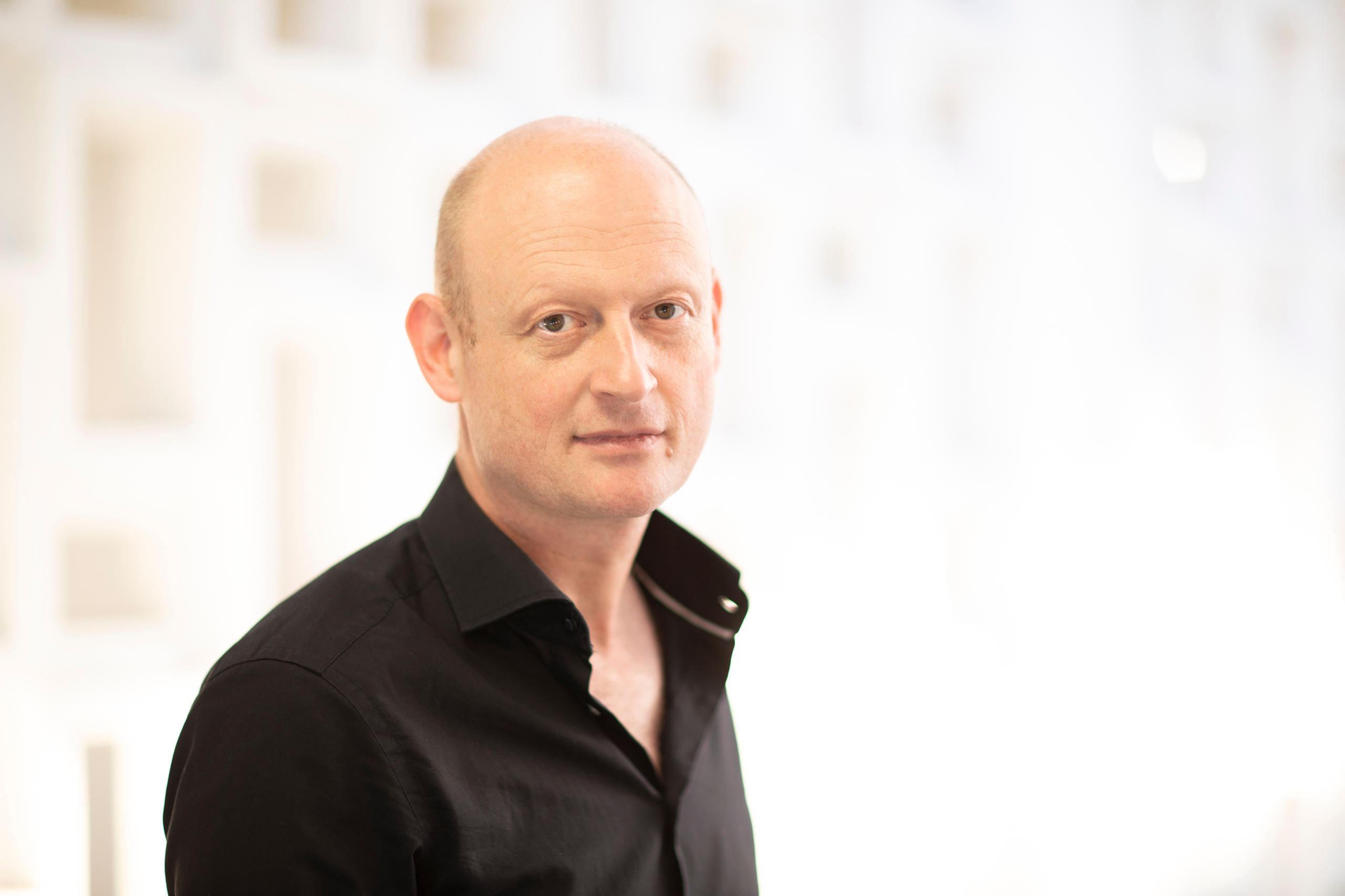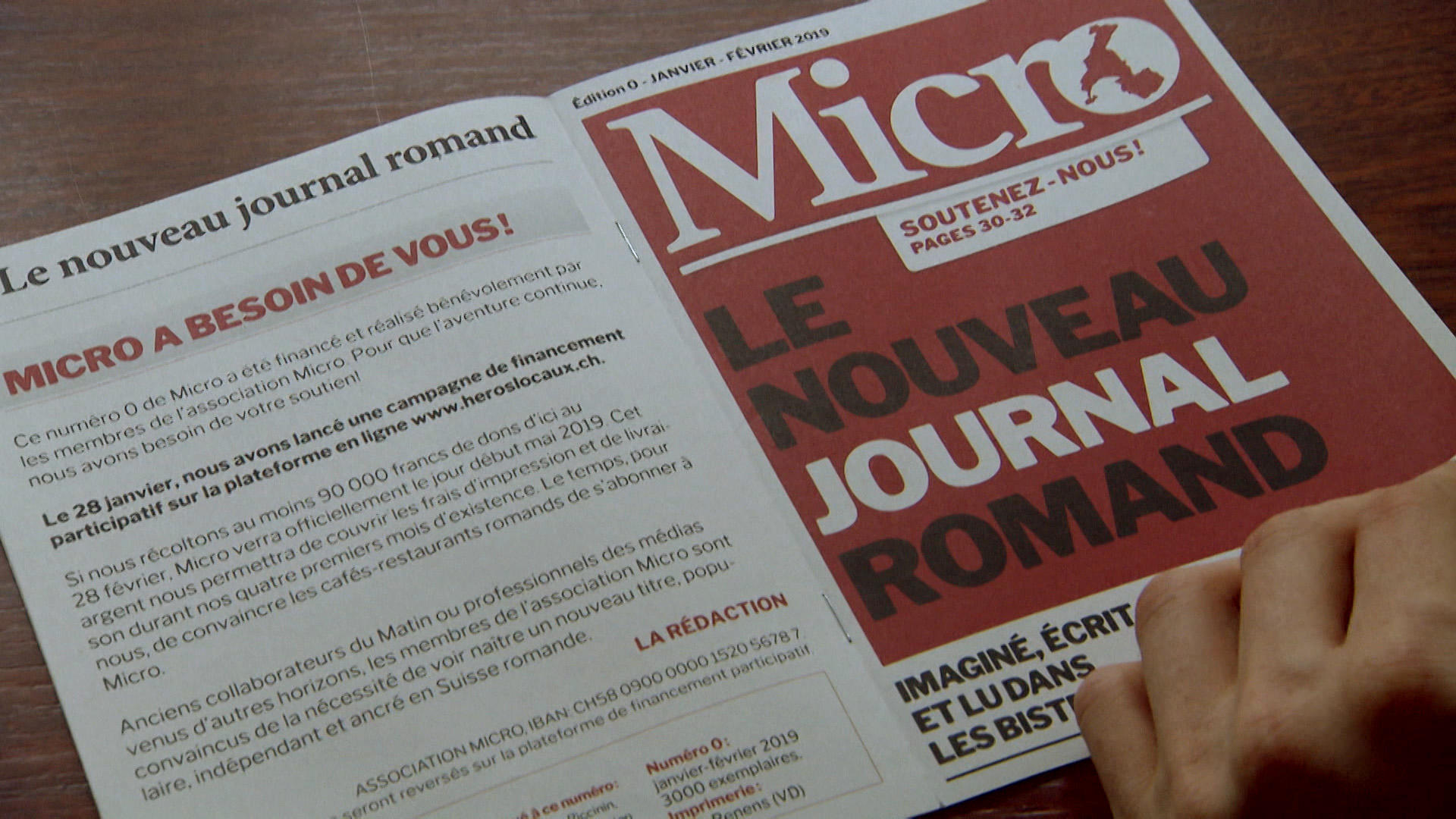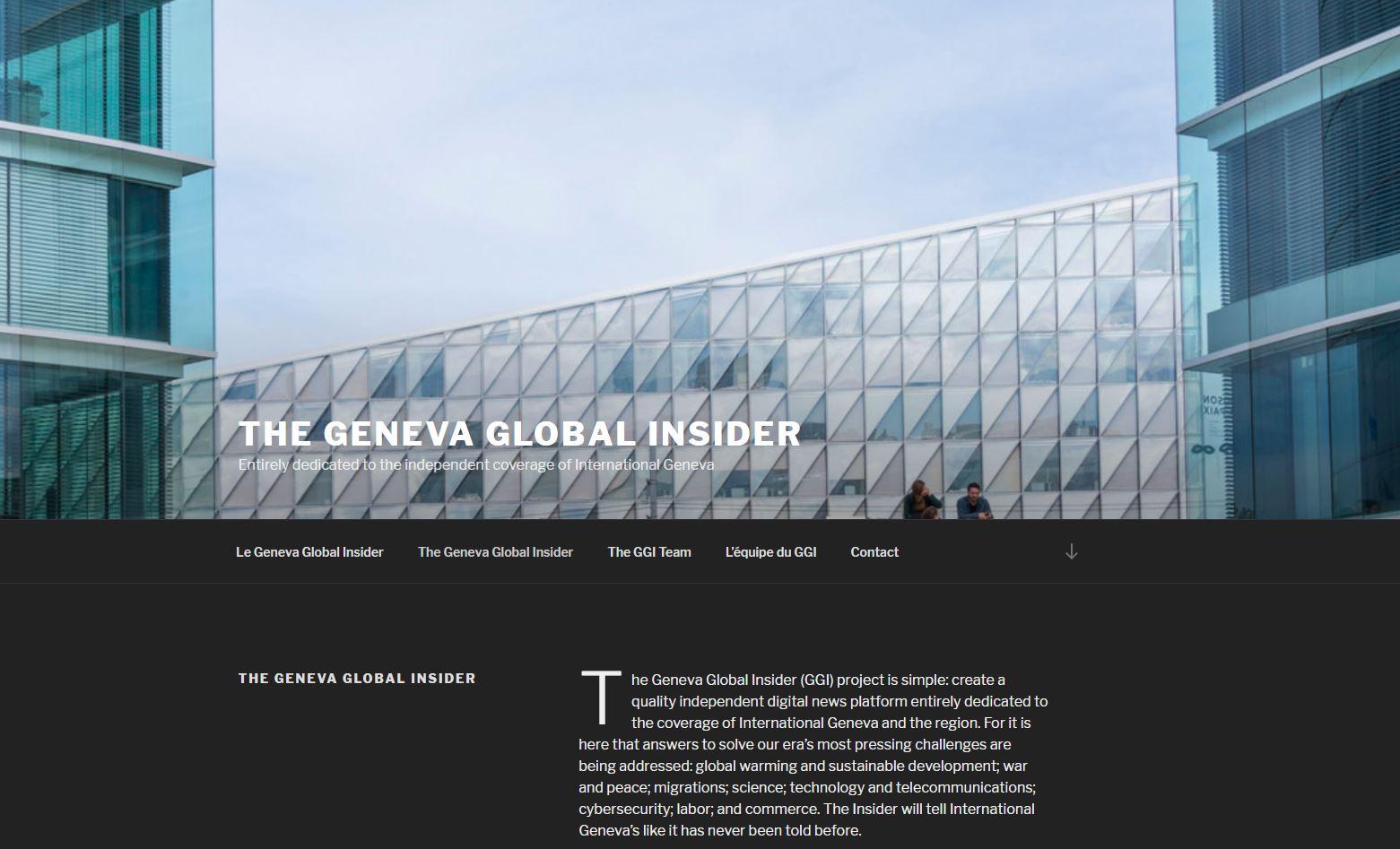Heidi News and other niche publishers take the plunge in Geneva

Heidi News, Micro, Global Geneva Insider: swissinfo.ch looks at very different new media ventures in the French-speaking part of Switzerland.
“We have huge ambitions but we’re starting very small,” explained Serge Michel, the co-founder and editor-in-chief of Heidi NewsExternal link, an online news site due to launch at the end of March.
Three years in the making, the Geneva-based start-up hopes to “explore and explain an ever-changing world from a Swiss point of view”.
“There is a Swiss focus, as we’re here in Geneva – it’s important to have roots,” says Michel who himself is Swiss and studied in the international city. “Our office will be in Geneva and that’s the strong connection to Switzerland.” He likens journalism to quality Swiss products that are strong exports like cheese and machines, saying good journalism can be ‘exported’ too.

Taking the plunge into the turbulent Swiss media worldExternal link is certainly not for the faint-hearted. In recent years, public and private organisations have faced heavy pressures from all sides. This has intensified cost-cutting and cooperation measures, leading to a marked increase in private media concentration, downsizing and job cuts.
Niche start-ups willing to jump in believe they have better chances of targeting readers, but there is a danger of overestimating the heavy costs involved in online news, experts warn.
Health and science
Heidi News’ initial focus will be on global topics like health and science, where they hope to target and draw on the knowledge of the large communities in French-speaking Switzerland who closely follow these issues – from hospital workers to university researchers.
Content will also come from freelancers from other parts of the world – Hong Kong, Tel Aviv, Zurich and Boston – who will send a daily newsletter with a round-up of local news and insights on the selected themes.
Every six months, they will add a new topic – or “flux” in Heidi lingo – to the site, such as finance, culture or education. It is also planning a monthly long-form reportage, published in episodes online and in printed magazine format. This will be concluded by a public conference on the topic.
“We’re an evolving, modular media that will move forward progressively,” Michel said. “We want to do six flux in three years. Each one is permanent and will add on top of each other. Each one will bring new members and communities. We are a niche media.”
Funding pressures
Heidi News is set to join several other new online players that have entered the turbulent Swiss media scene in the last few years, including WatsonExternal link, Sept.infoExternal link, Republik External linkand Bon pour la têteExternal link.
Despite being a wealthy country, the funding of small media operations remains a headache in Switzerland. Republik was launched on January 1, 2018, focusing mainly on German-speaking Zurich after raising CHF3 million via crowdfunding. But one year on, it has 22,000 subscribers, yet 27,000 are needed to cover its budget of CHF6.5 million. The focus right now is on getting people to renew their subscriptions.
Meanwhile, Bon pour la tête, which was born out of the ashes of the long-running weekly Hebdo, remains on a tight budget, relying on several volunteers.
Heidi News has raised CHF1 million in start-up funding from private investors and hopes to get 2,000 subscribers by the end of March; there are currently around 900.
Michel admits that fundraising over the past 18 months has been difficult: “In Switzerland the people who are financially successful don’t dream of owning a media,” he said.
Linards Udris, a media researcher at the University of ZurichExternal link, said niche online media start-ups tend to think they have better chances than traditional media but “they should not underestimate the costs to get up and running”.
“Having an attractive offer online really costs a lot of money,” he said, pointing to important factors like IT and marketing.
Local news over a coffee
As a result of the recent turbulence, the French-speaking region lost two major titles. Hebdo was shut down in 2017 for cost reasons, and more recently, the popular Le Matin tabloid printed its final paper edition last July.
A group of ex-Le Matin journalists are undeterred, however. Six months after the tabloid’s closure, they announced the launch of a new title – MicroExternal link – focusing on local news, distributed three times a week in cafés and restaurants in French-speaking Switzerland. Micro will be available online and by subscription.

More
A new newspaper for western Switzerland
The idea for the “popular, independent and participative” title came after speaking to café owners and readers, who they believe still want to read well-researched local news in print format over a coffee. The Micro team aim to build a community around French-speaking bistros and cafes, even carrying out editorial meetings together with the public in local establishments.
Last weekend, Micro announced that they had the necessary CHF90,000 in crowdfunding to launch the paper in May. Fundraising efforts are continuing to secure CHF250,000 to guarantee publication over the next 12 months.
Micro is not positioning itself as a competitor to the free 20 Minutes paper or to Swiss public radio/TV, RTS, said journalist Fabien Feissli.
“We are trying to do less but to tell the story of French-speaking Switzerland,” he said. Founded as an association, the new start-up comprises 15 initial founding members, two journalists and a graphic artist.

Global Geneva Insider
If all goes well, another new online news platform – the Geneva Global InsiderExternal link – may see the light of day in the coming months, aimed at providing independent coverage of so-called “International Geneva” and the region. (A magazine and online site with a similar name – Global GenevaExternal link – has been running since 2017).
Philippe Mottaz, an entrepreneur and former head of news and current affairs at RTS, is convinced that there is a need for a reader-financed media to “tell International Geneva’s story like it has never been told before”.
“Fundamentally we’re trying to offer International Geneva – public and private – the visibility we think it lacks,” he told swissinfo.ch. “There is a strange phenomenon. Geneva has a role and influence in the world but it’s one of the only places that doesn’t have a media that covers its activities and vocation. We hope to be a local media with an international reach.”
First reported 12 months ago, the project is still in gestation, however. Mottaz, former head of World Radio Switzerland (WRS), and his small team are currently working on building up the community and are running a series of focus groups to validate whether the project ultimately goes ahead. A decision will be taken at the end of May. If they get the green light, this will be followed by an “ambitious crowdfunding campaign” and hiring process in order to be operational at the end of 2019 or beginning of 2019, he explained.
“Funding is an enormous challenge when you are trying to reinvent or redefine the media business model which has been destroyed due to digital disruption,” said the media entrepreneur, who said they were considering “every revenue stream possible”.
It’s a risky venture that may not see the light of day, but there is a compelling need to act, said Mottaz: “Journalism is not in decline but in transformation, and we want to be part of that.”


In compliance with the JTI standards
More: SWI swissinfo.ch certified by the Journalism Trust Initiative
















You can find an overview of ongoing debates with our journalists here . Please join us!
If you want to start a conversation about a topic raised in this article or want to report factual errors, email us at english@swissinfo.ch.